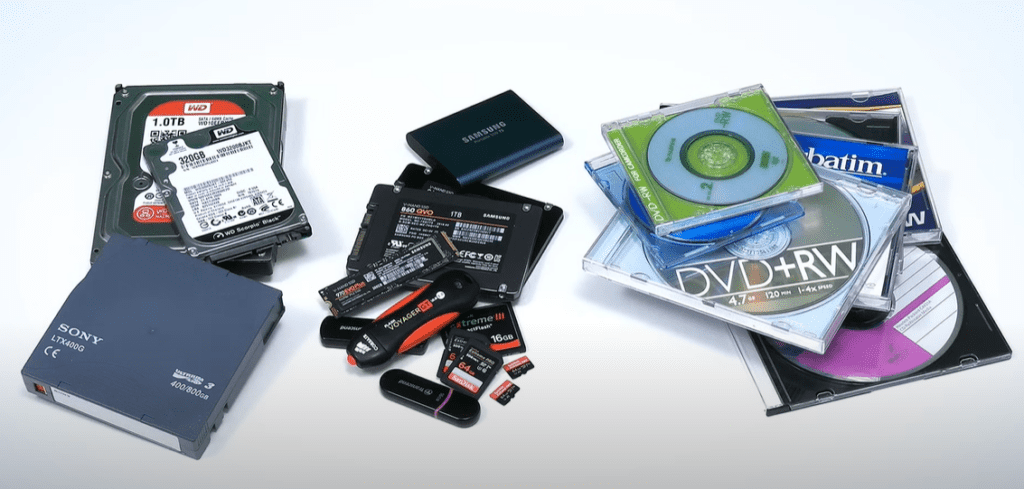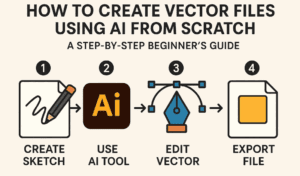In today’s digital era, understanding the life expectancy of storage media is crucial for data management and archiving. This article explores the lifespan of various storage technologies, including hard drives, solid-state drives (SSDs), and optical discs, offering insights into their durability under typical usage conditions.

1. Hard Drives (HDDs)
Hard drives store data on spinning magnetic platters, with read/write heads floating just above their surface. The mechanical nature of HDDs makes them prone to wear and tear over time.
- Average Lifespan: 3 to 7 years under typical usage.
- Factors Affecting Lifespan: Mechanical failures (e.g., motor issues, head crashes), environmental conditions (e.g., temperature fluctuations, vibrations), and power surges.
- Manufacturer Warranties: Seagate and Western Digital offer warranties ranging from 2 to 5 years, indicating their expected longevity.
- Key Data: Studies from Backblaze show that 90% of their HDDs have been operational for at least 4 years, with 65% running for 6 years or more under controlled conditions.
Tip: To extend the lifespan, avoid physical shocks, ensure proper ventilation, and regularly refresh stored data to prevent magnetic decay.
2. Solid State Drives (SSDs)
SSDs rely on flash memory cells to store data, eliminating mechanical parts and offering faster performance. Their longevity depends on the type of flash memory and write cycles.
- Average Lifespan: 5 to 10 years in normal use.
- Types of Flash Memory:
- SLC (Single-Level Cell): 100,000 Program/Erase (P/E) cycles
- MLC (Multi-Level Cell): 3,000 – 10,000 P/E cycles
- TLC (Triple-Level Cell): 500 – 3,000 P/E cycles
- QLC (Quad-Level Cell): 300 – 1,000 P/E cycles
- Data Retention: SSDs can lose data after 1-2 years if left unpowered. Modern controllers use “read scrubbing” to refresh data during idle periods.
- Manufacturer Guarantees: For example, Samsung’s 1TB 990 Evo has a warranty for 600 Terabytes Written (TBW), equating to around 16.4 years with 100GB written daily.
Tip: Regularly power on archived SSDs to maintain data integrity and avoid storing critical data on SSDs nearing the end of their P/E cycles.
3. Optical Discs (CDs, DVDs, Blu-rays)
Optical media store data using laser technology to alter dye properties on discs. Their lifespan greatly varies based on material quality and storage conditions.
- Average Lifespan:
- High-Quality CDs: 20+ years (gold discs up to 100 years)
- Gold DVD-Rs: 50 years
- Gold BD-Rs: 10 years
- Data Fade: Low-quality discs may become unreadable within a few years.
- Archival Media: M-Discs claim to retain data for up to 1,000 years, although this is based on accelerated aging tests.
Tip: Store discs in cool, dry environments and use high-quality, branded media for long-term archiving.
4. Magnetic Tape Storage
Magnetic tapes, still popular for archival purposes, offer impressive longevity when stored optimally.
- Average Lifespan: Up to 30 years
- Modern Tapes: LTO-9 cartridges offer 18TB of uncompressed storage.
Tip: Store tapes in temperature-controlled environments to maximize durability.
5. USB Flash Drives and Memory Cards
Similar to SSDs, USB drives and SD cards use flash memory, but their durability can be less due to cheaper materials.
- Average Lifespan: 5 to 10 years
- Data Retention: Not reliable for long-term, unpowered storage.
Tip: Always eject devices safely to prevent data corruption.
Key Takeaways
- Regular Backups: No storage medium is infallible; regular backups are essential.
- Environmental Factors: Keep devices in controlled environments to reduce wear.
- Data Refreshing: Rewriting data periodically helps prevent data fade.
- Diversification: Use multiple storage types for critical data.
By understanding the strengths and limitations of each storage medium, you can make informed decisions to safeguard your digital assets effectively.
Tags: data storage lifespan, hard drive durability, SSD life expectancy, optical disc longevity, magnetic tape storage, data archiving tips, USB flash drive lifespan, memory card durability
Hashtags: #DataStorage #HardDrives #SSDs #OpticalDiscs #DataBackup #DigitalArchiving #StorageTips #TechGuide



















